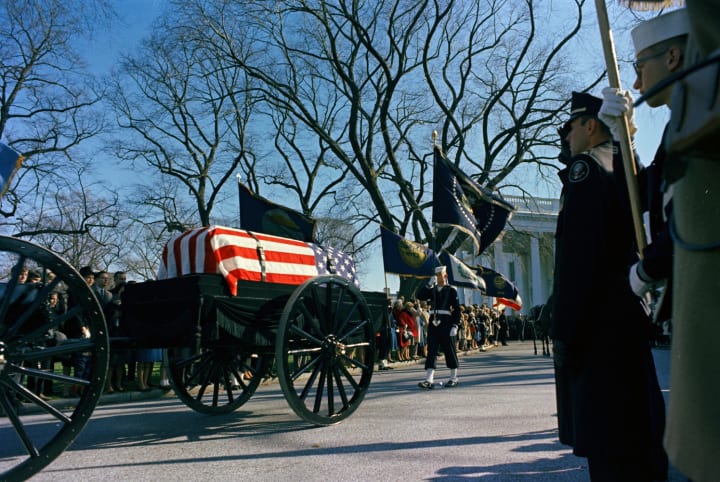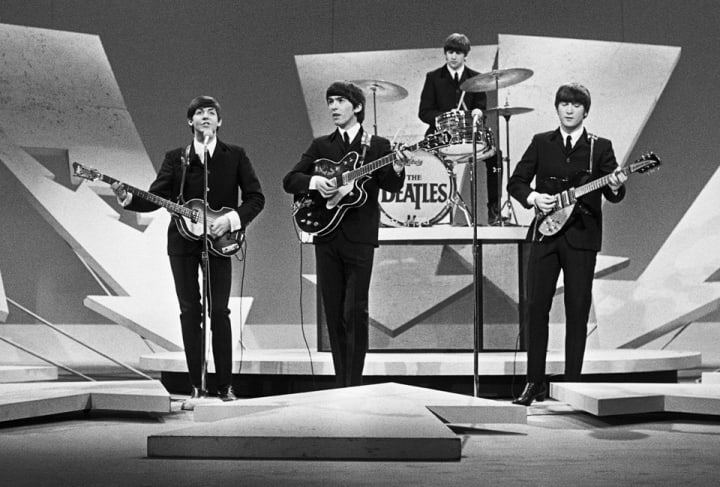November 22, 1963, is a grim day in history. But the Beatles took that “sad song” and made it better.
Almost everyone that was alive at the time can recall when, where, and what they were doing when President John F. Kennedy was shot riding in his motorcade through the streets of Dallas, Texas.
Only three other times had a President been assassinated before. The heaviness felt during Abraham Lincoln’s assassination in 1865 was a hurtful reminder that nothing this overwhelming had happened in nearly 100 years. The latest death before Kennedy taking place in 1901 with the assassination of William McKinley.
But this was still different.
With the rapid growth of television, there was now, for the first time in history, 24-hour news coverage of the event. Anywhere you turned, there was no escaping updated news on the President’s death. Each television network had its own coverage of the ongoing events, the state funeral, and the funeral procession. It was now the age of the moving image and everyone was tuned in.
The nation and the world mourned for those four dark days in November.
On November 25, an estimated 800,000 people lined the streets for JFK’s coffin procession from the Capitol. Over 175 million people around the world watched as the late President was to be taken to his final resting place at Arlington National Cemetery in Virginia.

Across the pond in England, the Beatles had just released their second LP, With The Beatles on the very same day. They had already sold 300,000 advanced copies of the album and were playing two evening shows in Stockton, England as part of their 1963 Autumn UK Tour.
The Beatles didn’t receive the news of President Kennedy’s death until after they had finished both of their sets due to the limited amount of transatlantic television and radio programs at the time. The Fab Four, like everyone else, was heartbroken to learn what had happened to America’s youthful leader. Hours turned into days, days turned into weeks, and after a gruelling month, it was the start of a new year: 1964.
The news was depressing, people were exhausted, and most of all, the public was scared after seeing the young President, seated next to his even younger wife, have his head blown to pieces, replaying on a constant loop on their TVs.
After November 22, the world needed an escape during the New Year.
Their oasis came in the form of four mop-topped looking boys from Liverpool. The Beatles released their next UK single, “I Want to Hold Your Hand”/”This Boy” on November 29, 1963. The song had immediate success and was the perfect tune to break America out of its gloomy haze. “I Want to Hold Your Hand” was released on January 17, 1964, in the United States and went straight to number one in advanced copies alone (950,000 advanced copies were sold). The US LP release of With The Beatles, renamed to Meet The Beatles by Capitol, went on sale on January 20. It too exceeded expectations and the Beatles became household names, in what seemed like overnight, to young girls everywhere.

Beatlemania was in full effect by the time the Beatles performed on The Ed Sullivan Show on February 9, 1964. Around 73 million Americans tuned in to watch the Fab Four sing to a sold-out crowd of 728 shrieking teenagers.
The happiness the Beatles exuded in their music and personalities gave a grieving nation a reason to smile again. They were unbelievably cute, witty, fresh, and gave off the same energy that had inspired the growing youth culture. In a way, it was like the torch had been passed to a new group that excited America.
But the Beatles and JFK connection doesn’t end there. The first time the Beatles were on American television aired on the morning of November 22, 1963. Naturally, any news that happened that day before the assassination of the President was completely forgotten. To quote an article written by Martin Lewis of the Huffington Post, “Just two hours after America first met the Beatles—the world lost John F. Kennedy.” Walter Cronkite remembered the story and the CBS feature was later replayed on December 10, 1963.
The Beatles came along at the most imperfectly perfect time. The world was sad, but they gave everyone a chance to be happy once again. The four, young mop-topped headed boys from England helped heal America’s broken heart after losing its leader.
The world is a much different place now than it was over 50 years ago. The impact the Beatles would have on not only music, but popular culture still continues to be felt today—as do John F. Kennedy’s words, which still live on as well.
There will never be another band like the Beatles and there will never be another president like JFK. Looking back, it’s only fitting that two of the biggest phenomena of the 1960s—the Kennedys and the Beatles—would be tied together, someway, through history.

